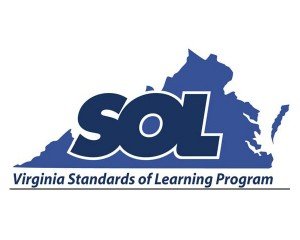 This is the final article in a series investigating the administration of the Standards of Learning assessment in Prince William County. You can read the first article here and the second one here.
This is the final article in a series investigating the administration of the Standards of Learning assessment in Prince William County. You can read the first article here and the second one here.
This spring, the number of Prince William County students who opted out of the SOLs more than doubled, increasing by approximately 50 students.
According to Prince William County Schools Communications Director Phil Kavits, fewer than 80 students opted out of the Standards of Learning exams this year. In 2014, 77 tests from 30 students were marked as opt outs.
“Our latest information suggests that fewer than 80 students were opted out of SOL tests this spring, representing about twelve-hundredths of a percent of those in courses for which the tests were given,” Kavits said. “These numbers have not yet been reported to Virginia and may change before they are finalized.”
While the number of students remains miniscule overall, it demonstrates that Prince William County is experiencing what school systems around the country are seeing, more students opting out of state testing.
SOLs exams or substitute exams are required for high school students to receive verified credits. However, for elementary and middle school students, the exams do not count for or against their progression to the next level. However. while choosing to not take the test does not count against the student, it will negatively affect the child’s school.
“Refusals do have an impact on the schools,” Kavits said. “Because a student receives a score of ‘0.’ When parents refuse participation, the missing test is counted as a failing score for a school in state and federal accountability pass rates, and a failing score for our division in federal accountability pass rates.”
The effect on schools is significant, since, according to the Virginia Department of Education, the purpose of SOL testing is to evaluate a school’s performance.
“The results from the SOL tests allow the department to identify and assist schools in which students are not achieving at grade level. The tests provide an objective means for measuring achievement gaps between student subgroups and for determining the progress of schools, divisions and the state as toward narrowing these gaps.”
However, some parents are adamant about opting their students out of testing.
Many local parents say they are increasingly opposed to a culture of testing and standardization, preferring a teacher-planned curriculum that allows the students to practice critical thinking and engage in meaningful activities and experience differentiated assessments.
Teachers, school board members and even state delegates generally agree testing should not be excessive. This is one reason Virginia has not adopted the Common Core even though not doing so meant forgoing receiving significant funds for education.
According to Charles Pyle communications director for the Virginia Department of Education, the Board has even reduced the number of SOL tests that Virginia students are required to take.
“In 2014, Virginia eliminated five elementary and middle school SOL tests: Grade-3 Science, Grade-3 Social Studies, U.S. History I, U.S. History II and Grade-5 Writing. Previously, students in grades 3-8 took a total of 22 assessments; they now take a total of 17.”
Pyle also explained the various ways SOL tests had recently changed, moving away from rote memorization and the standard A, B, C or D bubble format.
“Almost all SOL tests today are taken online. Tests in science, mathematics, reading and writing include interactive non-multiple choice items that require students to apply what they have learned. In 2015, the department introduced computer adaptive testing in Grade-6 Mathematics. This format provides each student with an assessment customized to his or her ability level. The department will expand computer adaptive testing as resources become available.”
Curbing test anxiety is another reason parents choose to opt their child out of standardized testing. While this eliminates the stress of sitting for the exam, these parents are concerned that their children must still be present for the direct instruction that prepares students to take the test.
Considering the negative aspects of standardized testing, some parents are treating opting out of testing as an act of civil disobedience, a way to tell law makers they disagree with the culture of standardization.
However, it is debatable whether it is the best or most effective approach.
Instead, Gainesville School Board member Alyson Satterwhite suggests parents write to their congressmen and women and express their concerns about standardized testing.
“Testing is not just a local issue. Local school systems are bound by federal and state laws. I am very glad that this conversation is finally happening around the nation. In order for real change to occur, it has to start at these levels,” said Satterwhite in an email. “As a nation, yes, we are over-testing our students. There is no doubt that Congress needs to step in and fix our current system. The question is how to fix it and can Congress even reach an agreement.”
Support Bristow Beat - Donate Today!